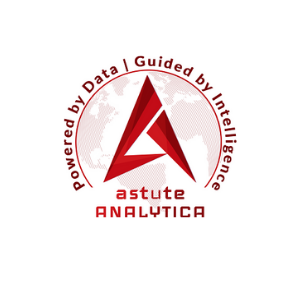Blockchain
Brian Brooks, Former Chief Banking Regulator, Joins Spring Labs

Brian Brooks, the former acting head of the U.S. Office of the Comptroller of the Currency (OCC), has joined Spring Labs, a leading financial technology firm transforming the exchange of sensitive data, as its first independent director. His appointment to Spring Labs’ Board of Directors follows Mr. Brooks’ high-impact tenure at the OCC, the national banking regulator that oversees over 1,200 banks, including JPMorgan Chase and Wells Fargo, that collectively represent 70% of the US banking system’s assets.
“Spring Labs is transforming financial data exchange in a way that is better for consumers,” Brian Brooks said in a statement. “I launched my financial inclusion initiative Project REACH while at the OCC, and I look forward to working with the Spring Labs team to bring the benefits of financial services to more Americans, while reducing cost and increasing security for everyone.”
By fundamentally altering the way consumer financial data is stored and shared, Spring Labs technology offers a unique combination of transparency and privacy that strengthens oversight while also unlocking new data sources that can be used to remove barriers that currently keep as many as 55 million Americans from fully utilizing modern financial services–or from being able to access them at all.
“Brian has a remarkable perspective on where the industry is headed, and his experience has given him a unique lens on transformative technologies and how they are being adopted,” said Adam Jiwan, co-founder of Spring Labs. “We are thrilled that he shares our vision as we build the secure rails for data exchange.”
The Spring Labs’ network technology is built on modern cryptography, which allows the visibility of information shared by network participants to be strictly controlled, and a permissioned blockchain, which provides a time-stamped, immutable record and audit trail to all network participants. This combination of data opacity and transaction transparency is a key to resolving the age-old problem of information sharing among competitors, as well as providing regulatory transparency without inhibiting competition.
In addition to financial inclusion, Mr. Brooks sees the Spring Labs platform as key “middleware” that builds upon another legacy of his time at the OCC: integrating digital assets, such as cryptocurrencies, into the traditional financial system to allow the new technology to securely scale within federal regulatory frameworks, including KYC/AML and compliance laws.
Spring Labs has raised over $38m and built an industry-leading partnership with over 50 major financial institutions, including GM Financial, SoFi, and Avant. In December, the company announced the launch of their network among PACE energy loan lenders. The technology has been credited with catching fraud at a rate of 1% of originations, saving an estimated 10% of annual industry revenue.
Spring Labs counts numerous industry veterans as advisors, including Gary Cohn, former President of Goldman, Sachs & Co, Bobby Mehta, former CEO of TransUnion, Nigel Morris, co-founder of Capital One, and Sheila Bair, former Chair of the FDIC.
Prior to his tenure at the OCC, Mr. Brooks was chief legal officer at Coinbase Global and Executive Vice President, General Counsel, and Corporate Secretary of Fannie Mae. Before those positions, Mr. Brooks was vice chairman at OneWest Bank and managing partner at global law firm O’Melveny & Myers LLP. Mr. Brooks holds a bachelor’s degree from Harvard University in government and a law degree from the University of Chicago.
Blockchain
Blocks & Headlines: Today in Blockchain – May 21, 2025

In an era defined by rapid innovation and regulatory shifts, today’s blockchain briefing spotlights five pivotal developments: enterprise-grade data integration, municipal crypto pilots, state-level policy hearings, AI-powered token growth, and secure communications on a public ledger. Across these stories, three key trends emerge:
-
Enterprise Adoption & Data Integration
-
Government Experimentation & Oversight
-
AI & Security Innovations in Crypto
Below, we dissect each story’s essence, unpack its broader implications, and offer opinion-driven insight for Web3 stakeholders.
1. Space and Time Joins Forces with Microsoft Fabric
Source: Chainwire / The Defiant
On May 20, 2025, Space and Time Labs (SXT)—a zero-knowledge data platform backed by Microsoft’s M12 Ventures—announced integration of its multichain index (Bitcoin, Sui, Ethereum) into Microsoft Fabric’s OneLake environment. This partnership delivers real-time, verifiable blockchain data directly within Azure, enabling developers and enterprises to build data-driven Web3 and AI applications without custom pipelines.
Opinion: Embedding verifiable on-chain data into mainstream analytics tools marks a watershed moment. As traditional enterprises crave decentralized insights, Fabric’s native access to SXT’s ZK-proven data could accelerate blockchain analytics, foster hybrid cloud-Web3 solutions, and reduce vendor lock-in. Expect more legacy tech giants to pursue similar alliances.
2. New York City Eyes Crypto for Taxes & Records
Source: DL News
Mayor Eric Adams revealed plans to form a Digital Assets Advisory Council to explore crypto-based payments for municipal services, including taxes, birth/death certificates, and land records. While specifics remain under wraps, Adams highlighted zero-knowledge proofs as a privacy-preserving tool for public documentation on distributed ledgers.
Opinion: New York’s initiative signals growing municipal appetite for blockchain beyond investments. By potentially accepting tax payments in crypto and securing vital records on-chain, NYC could pioneer use cases that blend transparency with privacy. However, pilot programs must rigorously address volatility, regulatory compliance, and digital inclusion to avoid disenfranchising underserved communities.
3. Wyoming Committee Explores Blockchain, AI & Right-to-Repair
Source: Wyoming Public Media
During its first interim meeting (May 14–15, Jackson Hole), Wyoming’s Select Committee on Blockchain, Financial Technology and Digital Innovation reviewed the state’s proposed Wyoming Stable Token—tethered 1:1 to USD—and examined AI governance and right-to-repair legislation. The Stable Token Commission anticipates a July 4 alpha launch, while lawmakers debated CBDC distinctions, tokenized real-world assets, and consumer repair rights.
Opinion: Wyoming continues to cement its reputation as a blockchain haven. Explicit carve-outs distinguishing stablecoins from CBDCs, coupled with regulatory sandboxes for AI and repair laws, underscore a holistic approach to innovation. Other states should monitor Wyoming’s alpha testing outcomes to inform balanced policy frameworks that nurture Web3 while safeguarding consumer interests.
4. AI Tokens Surge in Crypto’s New Tango
Source: The Economic Times
Himanshi Lohchab reports that AI-centric utility tokens—built to autonomously execute services like compute renting (Render), predictive analytics (SingularityNET), and data marketplaces (Ocean Protocol)—have seen market caps soar from $2.7 billion to nearly $30 billion within a year. Key players include Near Protocol’s AI modules, ICP, The Graph, and emerging AI agents that generate revenue per usage. Institutional interest from Grayscale, BlackRock, and Fidelity further validates the trend.
Opinion: The AI-blockchain convergence is no fleeting fad. AI tokens promise programmable revenue streams and decentralized toolchains, but they also introduce autonomous risk vectors—buggy smart contracts, accountability gaps, and regulatory ambiguity. Security audits, standardized interoperability protocols, and clear legal frameworks will be crucial to sustain investor confidence.
5. BSV Association Selects Binarii Labs for Secure Communications
Source: CoinGeek (via PRNewswire)
The BSV Association has designated Binarii Labs to implement BinariiDSM, an encrypted file exchange and messaging suite that logs proofs of record on the BSV blockchain. This integration ensures immutable audit trails, data resilience, and end-to-end confidentiality for enterprises seeking verifiable trust without centralized intermediaries.
Opinion: As data privacy regulations tighten globally, blockchain-anchored communication platforms like BinariiDSM offer a compelling alternative to legacy VPNs and secure email. By immutably recording metadata on-chain, organizations can demonstrate compliance, simplify audits, and deter insider threats. Look for BSV’s secure-messaging model to inspire similar offerings on other smart-contract platforms.
Conclusion: Navigating a Dynamic Blockchain Frontier
Today’s stories reaffirm that blockchain is no longer an experimental niche—it’s permeating analytics, public services, legislative agendas, tokenomics, and secure communications. To thrive:
-
Forge Strategic Alliances: Enterprises should partner with ZK and data-fabric innovators to embed blockchain insights into their analytics stacks.
-
Pilot Pragmatically: Municipalities must balance visionary crypto use cases with compliance, volatility management, and equitable access.
-
Craft Balanced Policy: States can emulate Wyoming’s sandbox approach—distinguishing stablecoins from CBDCs, while addressing AI and repair rights.
-
Secure the Autonomous Agent Era: As AI tokens multiply, enforce rigorous security audits and interoperability standards.
-
Leverage On-Chain Trust: Consider blockchain-anchored communications for immutable audit trails and enhanced data resilience.
By embracing these actions, organizations and policymakers can harness blockchain’s transformative power while mitigating emerging risks.
The post Blocks & Headlines: Today in Blockchain – May 21, 2025 appeared first on News, Events, Advertising Options.
Blockchain
Hair Transplant Market To Worth Over US$ 41.01 Billion By 2033 | Astute Analytica
Blockchain
VanEck Prepares to Launch PurposeBuilt Fund to Invest in Real-World Applications on Avalanche
-

 Blockchain Press Releases7 days ago
Blockchain Press Releases7 days agoFintica AI and Mima Wallet Announce Strategic Partnership and Launch Joint Venture, Fintica Crypto Ltd
-

 Blockchain6 days ago
Blockchain6 days agoBDM Digital Initiates Promising Dialogue with Stanford Law School in Pursuit of Strategic Partnerships in Silicon Valley
-

 Blockchain6 days ago
Blockchain6 days agoBlocks & Headlines: Today in Blockchain – May 15, 2025 (BTC’s Push, Pi Network Fund, Stablecoin Levers, JPM Pilot, OKX × Man City)
-
Blockchain6 days ago
Wen Acquisition Corp Announces the Pricing of $261,000,000 Initial Public Offering
-
Blockchain5 days ago
Mercurity Fintech’s Subsidiary Grows Cross-Border Business Advisory Services with New Asia-Pacific Healthcare Client Engagement
-

 Blockchain5 days ago
Blockchain5 days agoSaudi Arabia Loan Aggregator Market Report 2025: Retail Digital Payments Hit 70% as Tech Adoption Transforms Saudi Financial Services – Competition, Forecast & Opportunities to 2030
-

 Blockchain Press Releases7 days ago
Blockchain Press Releases7 days agoHTX Hot Listings Week 6 May 2025: Top Gainer Up 521% as Bitcoin Breaks $100K Again
-

 Blockchain5 days ago
Blockchain5 days agoBlocks & Headlines: Today in Blockchain – May 16, 2025


































